Lij Shaw is one of the few people to have benefitted from the COVID-19 pandemic. As the global shutdown began earlier this year, the Metropolitan Council (“Metro”) of Nashville and Davidson County reorganized its regular meetings into virtual gatherings. Lij appeared at one such meeting to talk up a proposed change to a local law that had severely affected the use of home studios in the Metro area.
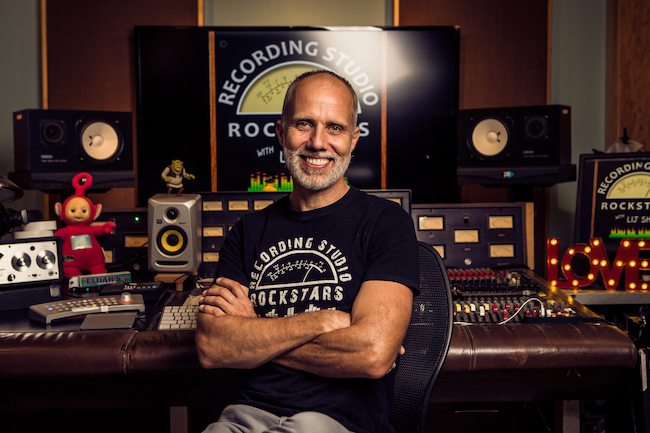
He recalls what he told the Council. "I said we encourage you to vote for this change, because we all need to work from home, now more than ever—in fact it’s what the entire world is telling us, to stay home. How can we home-studio owners be told we can’t actually work from our homes? I said the irony is not lost on us that the majority of you, the Metro Council, are joining us right now from your homes to vote tonight on whether the rest of us can make a living working from our homes tomorrow. And that was pretty effective."
It had been a long haul for Lij and many others in the Nashville music community who supported the change to what they saw as a nonsensical ruling. After all, this was Nashville, the place known as Music City USA. The place where, according to visitmusiccity.com, "Music has been the common thread connecting the life and soul of the city and its people." How on earth could Nashville, of all places, have more or less banned commercial home studios?
Lij is a music and podcast producer and the owner of the Grammy-awarded Toy Box Studio in East Nashville. In 2000, he bought his house there, chosen carefully with a garage at the back suitable for a home studio. He installed The Toy Box Studio there a few years later and worked steadily to build his name on the thriving local scene. In 2015, Mike Farris’s Shine For All The People won a Grammy for Best Roots Gospel Album, mixed by Chad Brown at the The Toy Box Studio. "That was a big celebration," Shaw recalls. "But it was short-lived, because within a month I received a letter from the city of Nashville saying I should cease and desist operating a commercial recording studio in a residence."
Among the many who advocated a change to the law was Dave Pomeroy. You’ve probably heard his bass playing—he’s worked with everyone from Don Williams to Alison Krauss. In 2008, he was elected president of the musicians union in Nashville (AFM Local 257), and since then he’s taken a keen interest in the fuss around the legality of home studios.
He says the existing laws relating to home occupation in Metro Nashville did not take into account the particular circumstances of running a home studio. "Things had changed over time," he explains, "as Nashville developed into this larger community and business hub for music, and as technology began more and more to allow you to record in your home."
Lij Shaw’s cease-and-desist letter probably came as a result of somebody anonymously ratting him out to the authorities. "That’s how the complaints system for home businesses worked then in Nashville," he says. "Anyone could fill out a website form and turn somebody in, anonymously. Not very neighborly, you know? People should be building better friendships, not better fences."
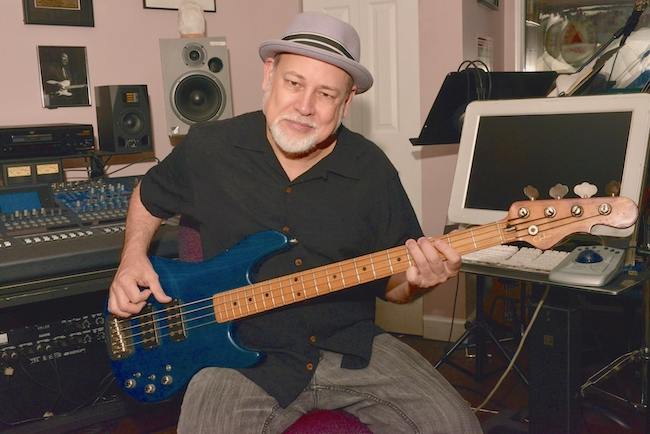
Pomeroy says the problem for Nashvillians running a home studio centered on the notion of "clients" who might visit—meaning other musicians, songwriting partners, anyone other than the owner. "There was an inability on the part of the city to make any kind of determination about who’s a client or customer and who isn’t," he says.
"That meant anyone who didn’t want you to be recording in your house—a neighbor, say—could see two guys co-writing a song and playing all the instruments themselves as some kind of a commercial transaction, even if that wasn’t the case. So gradually this turned into a lot of people in effect hiding from the law. For many, many years it was a case of Don’t Ask, Don’t Tell."
Pomeroy had been involved in an earlier attempt at a change to the law. He summarizes the opposition: "Basically, they said we don’t want these crazy musicians in our midst causing problems, with their all-night recording parties—just ridiculous stuff. But they got a lot of last-minute momentum," he says, "and as the final vote approached in our first attempt at legislation, in 2013, the council people who we had put it together with came to us and said, ‘Look, this is not going to pass, there’s too much opposition. Rather than have it voted down, we should just pull it.’ We were all very disappointed—but we understood their point and withdrew it."
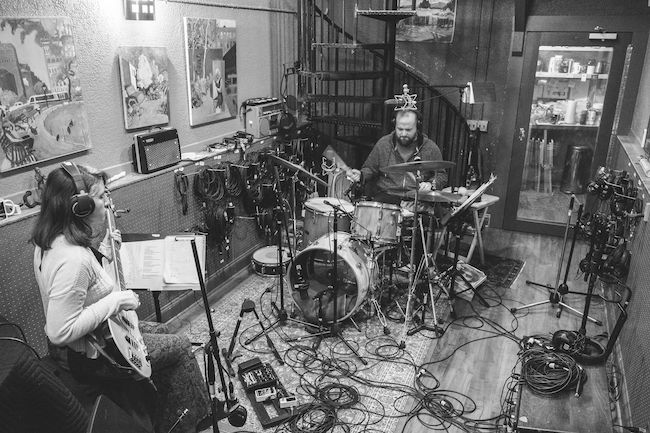
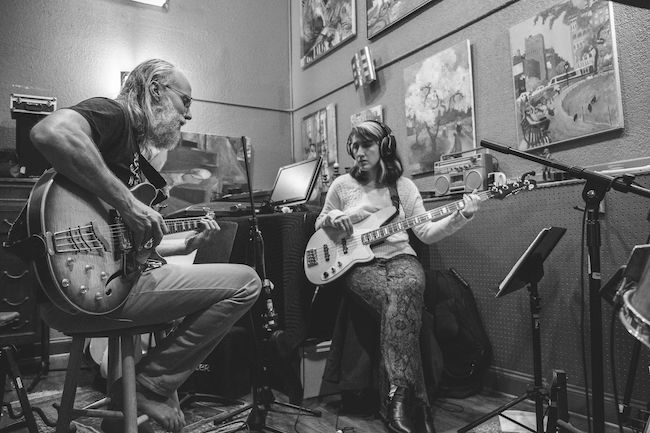
Back to 2015, and Lij Shaw was quoted in The Tennessean newspaper saying his main aim was to allow people to carry on working, legally, at home. Following that, two non-profit legal firms got in touch: the local Beacon Center Of Tennessee and the national Institute For Justice. "I found it scary, because they were saying to me, ‘Look, you can fight this.’ It sounded hard, something that could take years. But we decided to work together—I like to refer to them as The League Of Justice."
So began a five-year-long haul. Shaw launched a podcast and an accompanying online business so that at least he had some means of support. "The nice thing about being in the music industry," he says with a weary smile, "is that you’re already used to being pretty scrappy to survive."
As a follow-up to the cease-and-desist letter, Shaw was told that he should remove all his recording gear from his premises. After some haggling, this threat was withdrawn, with the proviso that if another complaint was made about him recording anyone other than himself, including podcasting, the City would immediately take him to court and file a warrant.
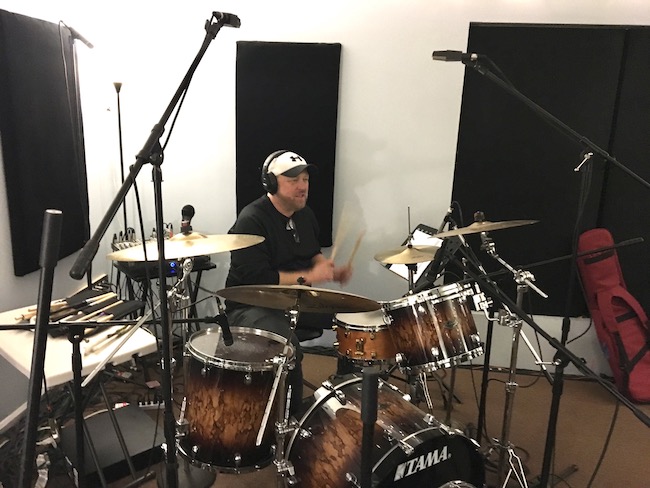
Shaw and the legal teams applied for a more flexible "Specific Plan" rezoning, which took a year of petitioning the neighborhood, public hearings, a petition, and so on, but it was voted down. Next, they tried a lawsuit, based on what Shaw describes as Tennessee’s constitutional right to make a living in your home so long as it doesn’t bother anybody, and with the aim of removing the cease-and-desist claim. That took two years to go through the system, but in 2019 it was turned down by the Chancery Court. They filed an appeal, which at the time of writing is still in process.
Then came the breakthrough. At the start of 2020, Metro council member Dave Rosenberg planned a change to the home occupation bill that would allow customers to visit licensed home businesses. "Our endgame magically appeared! I just said right, we’re going to make this happen," Shaw recalls.
He’d launched a website, savehomestudios.com, to provide a focus for changing the law, and put up a petition at change.org, which by the conclusion of the campaign had over 5,000 local signatures among a total of 166,000. The opposition came primarily from the Coalition For Nashville Neighborhoods, chaired by John Summers. "Wake up Nashville—your home and your entire neighborhood may soon be rezoned to allow a mix of commercial businesses to operate with on-site customers. This will lead to increased traffic, parking, and other problems," Summers wrote in an opinion piece in The Tennessean.
"If you’re comfortable with a law office, massage therapist, hair salon, photography or recording studio operating next door, complete with a daily revolving door of customers, then sit back and relax, it may be coming to your neighborhood or next door to you soon," Summers continued. "But if you think businesses should remain in commercial areas, and homes should remain in residential neighborhoods, contact the Metro Council."
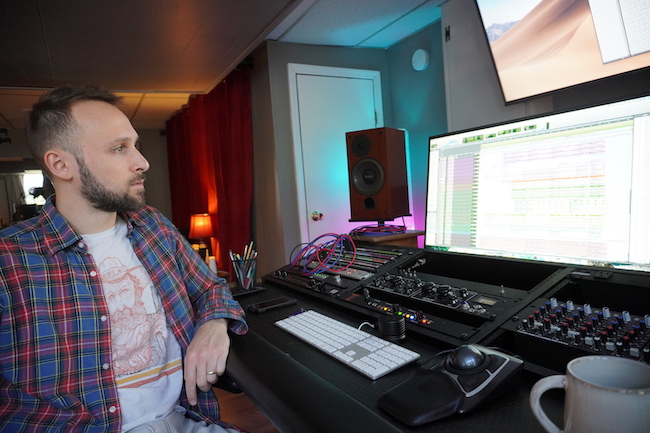
Shaw decided to do something different for a public hearing in early March and planned to show up with a guitar so that he and the other supporters could sing the councillors a song, ‘We Need To Work From Home,’ which was billed online as "written and recorded in a home studio in Music City by Tommy Womack and Lij Shaw."
Two days before that meeting, Nashville was hit by a tornado that ripped through the city, but somehow they managed to hold the meeting amid the chaos. A month or two later, with the pandemic in full flow, the vote was pushed forward to June. Just before that meeting, BLM protests in Nashville saw the Metro Courthouse—where the vote was due to take place—set on fire.
"Somehow we managed to press on," Shaw says. "Finally, on July 7, the vote went ahead, and—we won! It was such a thrill after all the effort." There were still some restrictions relating to allotted space, parking, timing and frequency of visits, signage, noise, and so on, but the essence was that home studio owners were now relatively free to pursue licensed businesses.
"I think most folks are breathing a sigh of relief," Dave Pomeroy at the AFM says, "because now they can continue to do exactly what they’ve been doing, but not worry that some jerk neighbor who’s having a bad day decides he doesn’t like you being able to make music for a living, and wants to turn you in for having an illegal business in your home."
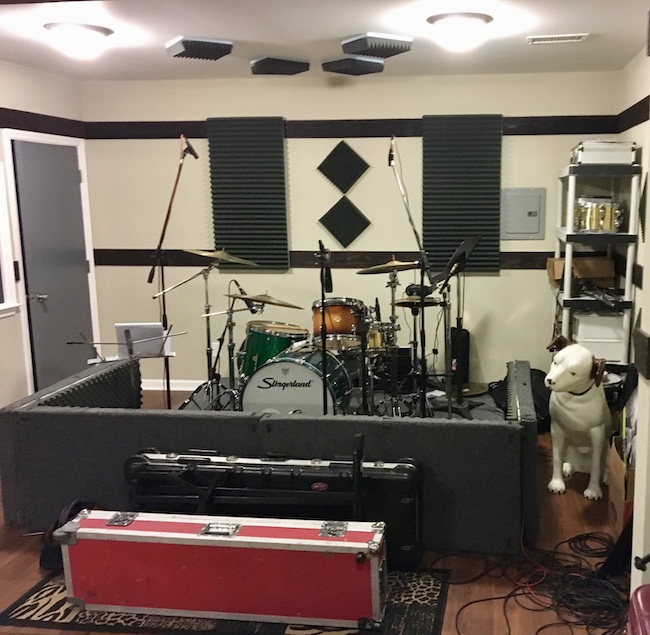
The change affects everyone recording at home in the Nashville area, but it’s especially encouraging for up-and-coming recordists. Nick Lobel is a 32-year-old engineer who moved to Nashville in 2013 and completed his college degree in Audio Engineering Technology at the city’s Belmont University. Today he has his own Candy Planet studio.
"I work from home there 50 to 60 percent of the time," Lobel says. "The rest of the time I work for a producer, Tyler Johnson, and we rent a space just south of downtown Nashville for his projects." Johnson is probably best known for his work with Harry Styles. "There are projects where it’s just so much more efficient for me to come home and edit, work on overdubs, whatever, while Tyler is maybe tracking or writing with an artist. And I also use my space for working on my own projects, for writing, or for producing for an artist."
Lobel says the change in the law has given his self-assurance a boost as he takes his career forward in Nashville. "It gives me more confidence to make improvements to my home that will be beneficial to the studio, and to not have to worry about potentially being shut down. I guess it might allow me to take a little more risk, too, maybe putting more money into the place—there’s things I could do to continue improving the room, now there is more protection for home businesses."
Lij Shaw concludes that local democracy is fueled by individual effort tied together with that of others. "It takes a group, but it takes individual effort within that group. I started out feeling I was an individual who was singled out as a bad guy," he recalls, "as if I’d been slapped on the wrist by the teacher, and I felt ashamed. But five years later I flipped the entire thing on its head, so that I became the good guy and made a change for everybody. I realized the law is not written in stone, it’s created by the people, and we have the ability to turn something around and make it so we’re all the good guys."
About the author: Tony Bacon writes about musical instruments, musicians, and music. He is a co-founder of Backbeat UK and Jawbone Press. His books include Million Dollar Les Paul, London Live, and The Bass Book. Tony lives in Bristol, England. More info at tonybacon.co.uk.
